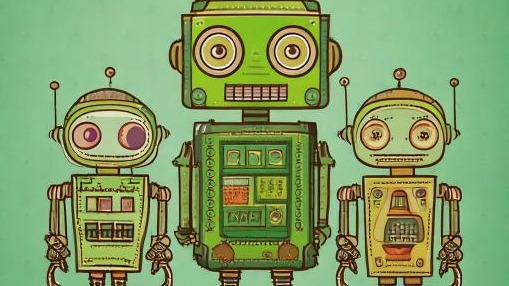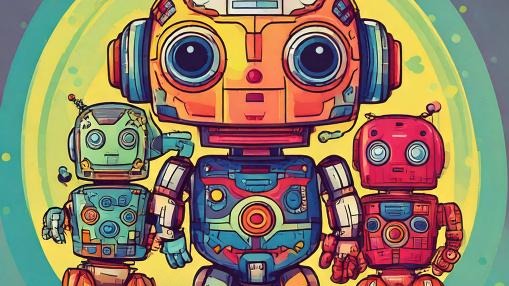The rise of machines and automation is one of the most significant developments in contemporary society. From manufacturing to healthcare, and from agriculture to finance, automation is reshaping industries, redefining jobs, and altering the very fabric of our daily lives. This transformation brings both opportunities and challenges, as we navigate a world increasingly influenced by intelligent machines. In this exploration, we will delve into the mechanics of automation, its impact on various sectors, the societal implications, and what the future may hold.
Understanding Automation
What is Automation?
Automation refers to the use of technology to perform tasks without human intervention. This can involve mechanical devices, software applications, or robotic systems that execute processes traditionally carried out by humans. The goal is to increase efficiency, reduce costs, and improve accuracy.
Historical Context
The concept of automation is not new; it dates back to the Industrial Revolution when machines began replacing manual labor in factories. However, recent advancements in artificial intelligence (AI), machine learning, and robotics have propelled automation into a new era. Today’s machines are not just tools; they can learn from data, adapt to new situations, and perform complex tasks that were once thought to require human intelligence.
The Mechanisms Behind Automation
Key Technologies Driving Automation
- Artificial Intelligence (AI): AI enables machines to simulate human intelligence processes such as learning, reasoning, and problem-solving. It allows for data analysis at scales and speeds beyond human capability.
- Machine Learning: A subset of AI, machine learning involves algorithms that improve automatically through experience. This technology is crucial for predictive analytics and decision-making processes.
- Robotics: Robots are increasingly used in manufacturing and service industries to perform repetitive tasks with precision and speed.
- Internet of Things (IoT): IoT connects devices over the internet, allowing them to send and receive data. This connectivity enhances automation by enabling real-time monitoring and control.
- Big Data: The ability to analyze vast amounts of data helps organizations make informed decisions quickly, optimizing processes across various sectors.
Impact of Automation on Industries
1. Manufacturing
The manufacturing sector has been at the forefront of automation for decades. Automated assembly lines have increased production rates while reducing labor costs. Robotics can perform tasks such as welding, painting, and assembly with greater speed and accuracy than human workers.
- Benefits: Increased productivity, improved quality control, reduced operational costs.
- Challenges: Job displacement for low-skilled workers; need for retraining programs.
2. Healthcare
In healthcare, automation is revolutionizing patient care through telemedicine, robotic surgeries, and AI-driven diagnostics. Automated systems can analyze medical data faster than human practitioners, leading to quicker diagnoses and treatment plans.
- Benefits: Enhanced patient outcomes, reduced errors in medication administration.
- Challenges: Ethical concerns regarding patient data privacy; potential job loss for administrative roles.
3. Transportation
The transportation industry is experiencing a significant transformation with the advent of autonomous vehicles (AVs). These vehicles use AI and sensor technology to navigate without human input.
- Benefits: Increased safety by reducing human error; potential reduction in traffic congestion.
- Challenges: Regulatory hurdles; public acceptance; job losses in driving professions.
4. Finance
Automation in finance includes algorithmic trading systems that execute trades at lightning speed based on market conditions. Robo-advisors provide automated investment advice based on individual risk profiles.
- Benefits: Lower fees for consumers; increased efficiency in trading operations.
- Challenges: Job displacement in traditional financial advisory roles; risks associated with algorithmic trading errors.
5. Agriculture
Automation in agriculture includes precision farming techniques using drones and automated machinery for planting, watering, and harvesting crops.
- Benefits: Increased yield efficiency; reduced labor costs.
- Challenges: High initial investment costs; potential loss of traditional farming jobs.
Societal Implications of Automation
Job Displacement vs. Job Creation
One of the most significant concerns surrounding automation is job displacement. As machines become capable of performing tasks traditionally done by humans, there is a fear that many jobs will become obsolete. According to a report by the World Economic Forum, while automation could displace 75 million jobs by 2022, it could also create 133 million new roles as industries adapt to new technologies.
Transitioning Workforce
The transition may not be smooth for all workers. Those in routine manual jobs are at higher risk of displacement compared to those with advanced skills who can work alongside machines. This shift necessitates a focus on education and retraining programs to equip workers with the skills needed in an automated economy.
Economic Inequality
Automation has the potential to exacerbate economic inequality. Highly skilled workers who can leverage technology may see their wages rise while low-skilled workers face stagnation or decline in job opportunities and wages. Policymakers must address these disparities through targeted interventions such as education reform and social safety nets.
Read More :- Click here to read
Changes in Work Dynamics
As automation takes over routine tasks, human workers may find themselves focusing on more complex problem-solving roles that require creativity and emotional intelligence—skills that machines cannot replicate easily. This shift could lead to a more fulfilling work environment but may also demand a cultural change in how work is perceived.
Preparing for an Automated Future
Education and Training
To thrive in an automated world, education systems must evolve:
- STEM Education: Emphasizing science, technology, engineering, and mathematics (STEM) will prepare students for careers in tech-driven fields.
- Lifelong Learning: Continuous education programs will help workers adapt to changing job requirements throughout their careers.
- Soft Skills Development: Skills such as critical thinking, creativity, communication, and emotional intelligence will become increasingly valuable as automation takes over routine tasks.
Policy Interventions
Governments play a crucial role in shaping the future of work:
- Social Safety Nets: Implementing policies such as universal basic income (UBI) or wage subsidies can help support displaced workers during transitions.
- Investment in Infrastructure: Investing in digital infrastructure will ensure that all workers have access to the tools needed for success in an automated economy.
- Regulatory Frameworks: Establishing regulations around automation technologies will help address ethical concerns related to privacy and job displacement while fostering innovation.
Conclusion
The rise of machines through automation presents both remarkable opportunities and formidable challenges for society. As we embrace this technological revolution, it is essential to recognize that while machines can enhance productivity and efficiency across various sectors, they also require us to rethink our approach to work and education.By proactively addressing the implications of automation—through education reform, policy interventions, and a focus on lifelong learning—we can ensure that the benefits of this transformation are shared broadly across society rather than concentrated among a privileged few.As we stand on the brink of this new era defined by intelligent machines, our ability to adapt will determine not just our economic future but also our collective well-being as we navigate the complexities of an automated world together.








